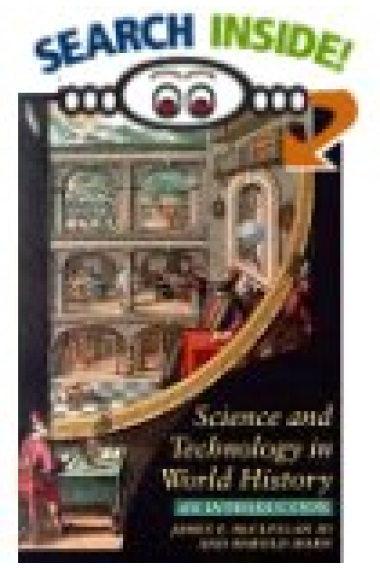
Detalles del libro
McClellan and Dorn review the historical record beginning with the thinking and tool making of prehistoric humans. Neolithic people, for example, developed metallurgy of a sort, using naturally occurring raw copper, and kept systematic records of the moon's phases. Neolithic craftsmen possessed practical knowledge of the behavior of clay, fire, and other elements of their environment, but though they may have had explanations for the phenomena of their crafts, they toiled without any systematic science of materials or the self-conscious application of theory to practice.
McClellan and Dorn identify two great scientific traditions: the useful sciences, patronized by the state from the dawn of civilization, and scientific theorizing, initiated by the ancient Greeks. Theirs is a survey of the historical twists and turns of these traditions, leading to the science of our own day.
Without neglecting important figures of Western science such as Newton and Einstein, the authors demonstrate the great achievements of non-Westerncultures. They remind us that scientific traditions took root in China, India, and Central and South America, as well as in a series of Near Eastern empires, during late antiquity and the Middle Ages, including the vast region that formed the Islamic conquest. From this comparative perspective, the authors explore the emergence of Europe as a scientific and technological power. Continuing their narrative through the Manhattan Project, NASA, and modern medical research, the authors weave the converging histories of science and technology into an integrated, perceptive, and highly readable narrative.
- Encuadernación Tapa blanda
- Autor/es McClelland III,J./Dorn,H.
- ISBN13 9780801858697
- ISBN10 0801858690
- Páginas 404
- Año de Edición 1999
Science and technology in world history. An introduction
- Autor/a McClelland III,J./Dorn,H.
- Editorial JOHNS HOPKINS U.P.
- ISBN 9780801858697

Nuestras libreras pueden consultar su disponibilidad y darte un estimado de cuándo estaría listo.
 ¡Gracias por comprar en librerías reales!
¡Gracias por comprar en librerías reales!

 Alibri Llibrería, Barcelona
Alibri Llibrería, Barcelona
 Librería Lé, Madrid
Librería Lé, Madrid
 Caselles Llibrería, Lleida
Caselles Llibrería, Lleida








